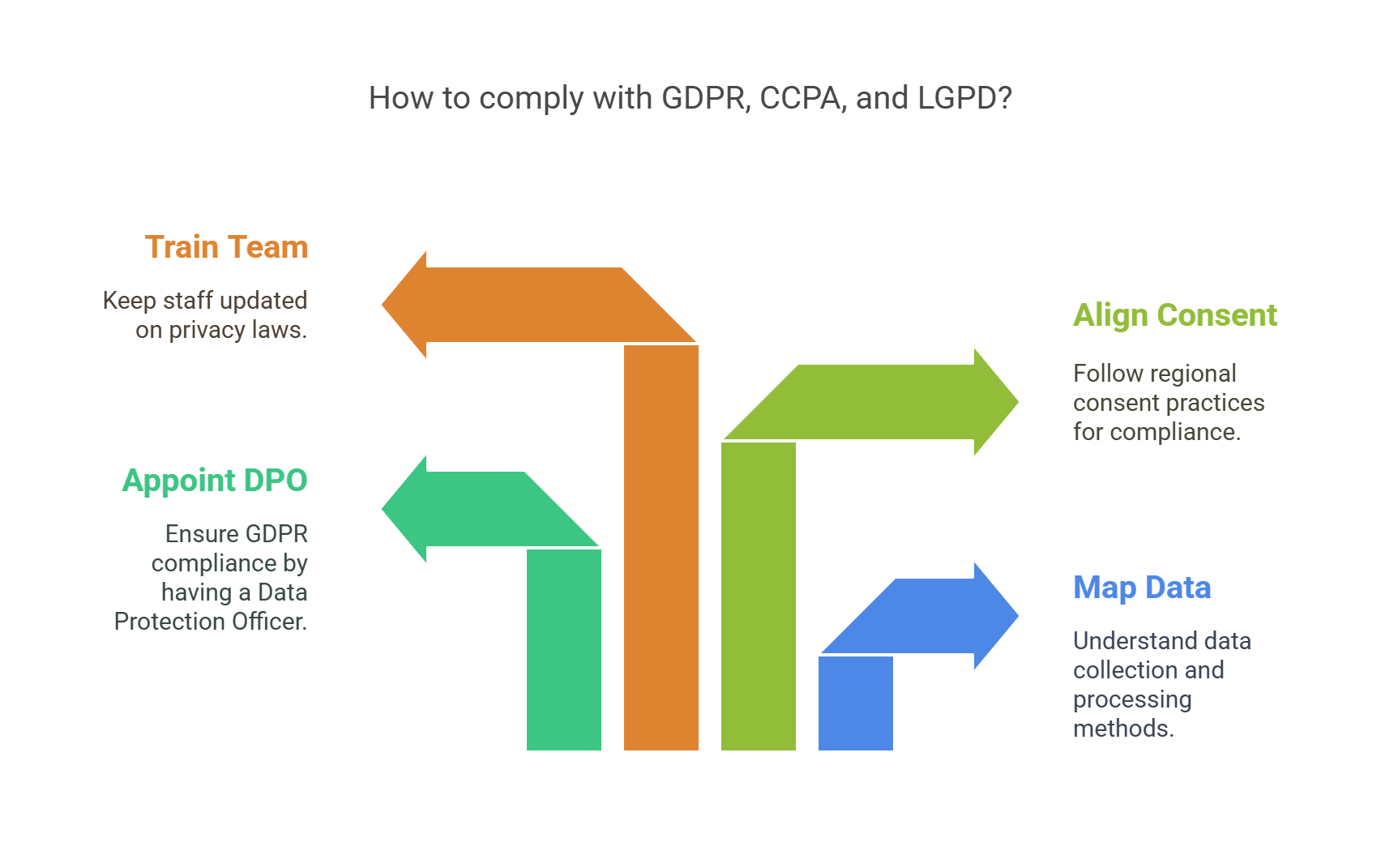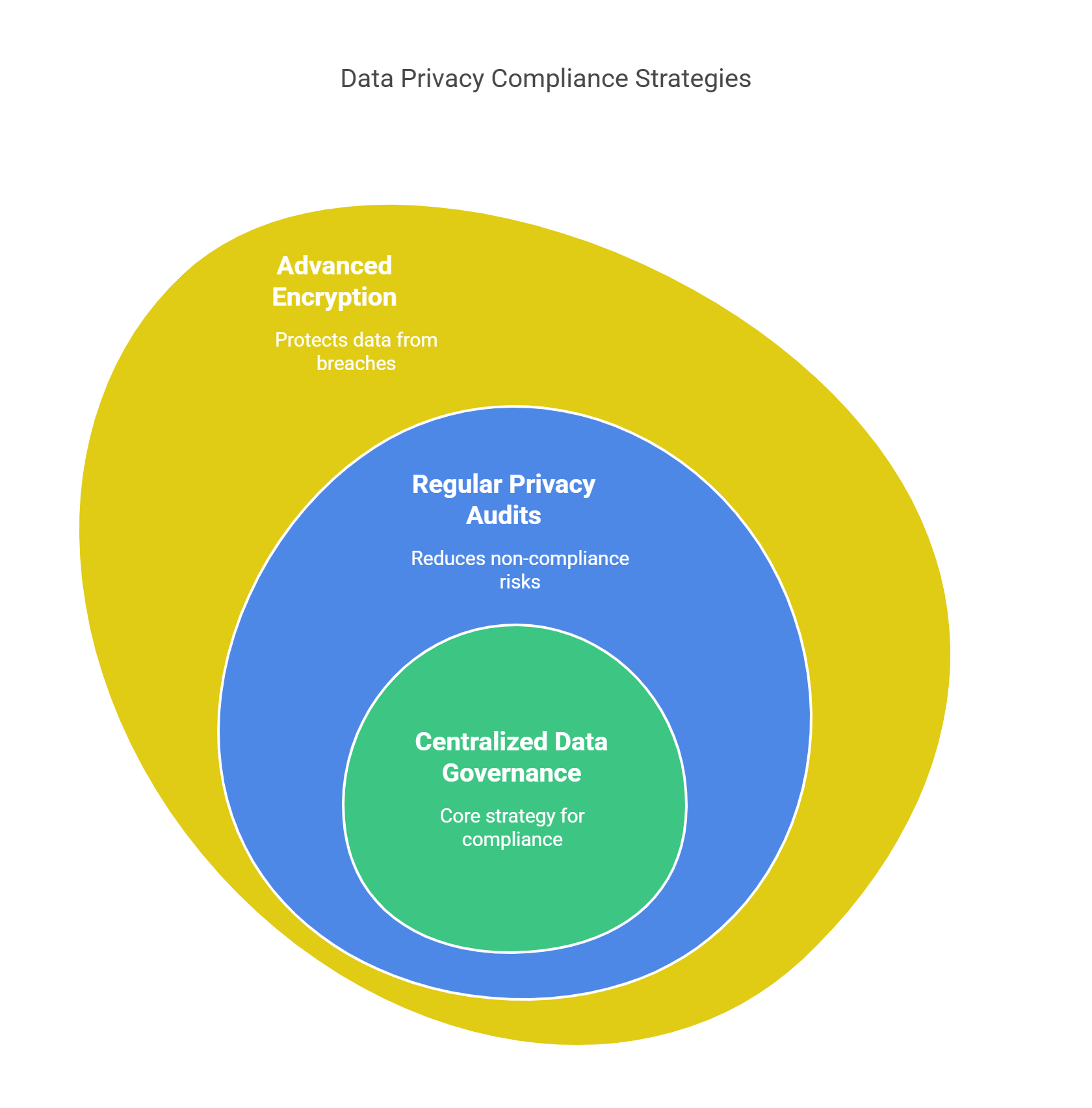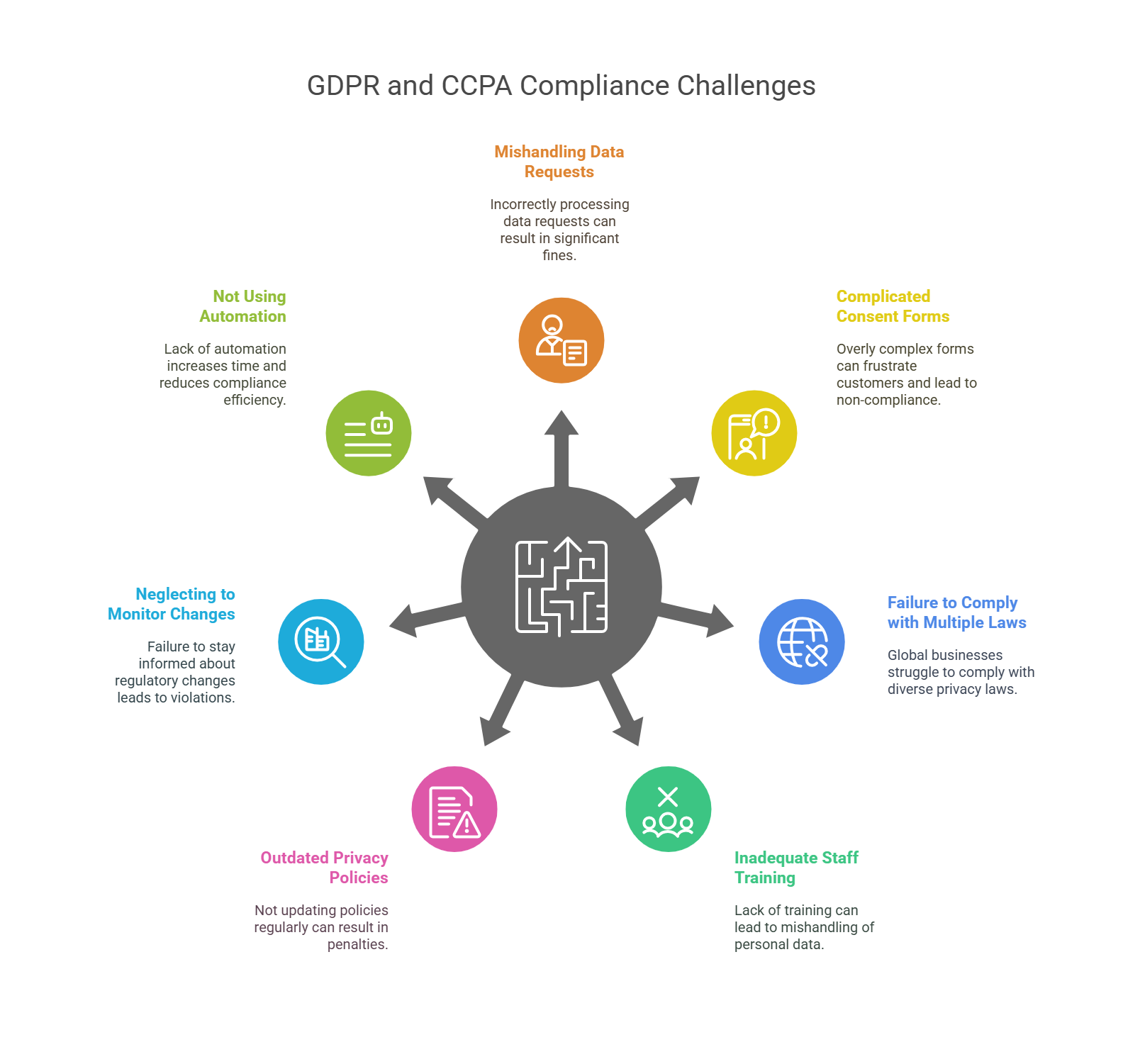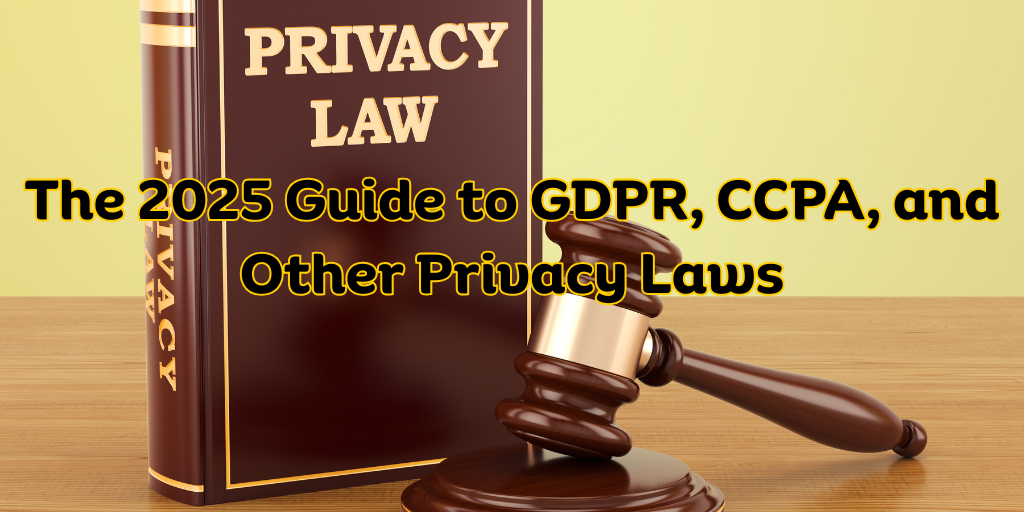Why Privacy Laws Matter
Privacy laws are crucial for any business. Knowing the rules, like GDPR and CCPA, helps protect customer data and keeps your business safe from penalties. Whether you’re a large company or a small one, following these laws is key to your success.
This guide covers GDPR, CCPA, and other privacy laws. We’ll highlight the differences, give tips for businesses, and talk about penalties and updates for 2025.
The 2025 Guide to GDPR, CCPA, and Other Privacy Laws
1. GDPR vs. CCPA: Key Differences
Both GDPR and CCPA are important privacy laws but have key differences:
| Aspect | GDPR | CCPA |
|---|---|---|
| Scope | EU residents | California residents |
| Who It Applies To | Companies handling EU data | Businesses in California |
| DPO Required | Yes, for some companies | No |
| Penalties | Up to 4% of revenue or €20M | Up to $7,500 per violation |
| Rights for Consumers | Access, erasure, correction | Access, deletion, opt-out |
The GDPR protects personal data in the EU, while the CCPA gives more rights to California residents over their data.
2. How to Stay Compliant with GDPR, CCPA, and LGPD as a Global Business
To comply with GDPR, CCPA, and LGPD (Brazil’s privacy law), businesses should:
-
Map Your Data: Know what data you collect and how you process it.
-
Appoint a DPO: Some businesses need a DPO under GDPR.
-
Align Consent Practices: Follow the rules for each region.
-
Train Your Team: Regularly update staff on privacy laws.

3. Best Practices for Handling Data Subject Requests
Handling data subject requests (DSRs) is crucial for compliance. Here are best practices to follow:
-
Easy Request Channels: Make it simple for customers to submit requests.
-
Timely Responses: Respond within the required time (30 days for GDPR, 45 days for CCPA).
-
Verify Requests: Always check the identity of the requester.
-
Automated Systems: Use automation to handle common requests like deletion.
4. Penalties for Non-Compliance
Failure to comply with privacy laws can result in steep fines:
-
GDPR: Fines up to 4% of revenue or €20M.
-
CCPA: Fines up to $7,500 per violation.
Ignoring these laws can damage your business, financially and in reputation.
5. 2025 Privacy Law Updates: GDPR, CCPA, and PIPEDA
Here are the latest updates for 2025:
-
GDPR: Stricter rules on AI and automated decisions.
-
CCPA: CPRA gives more control to consumers, including the right to delete sensitive data.
-
PIPEDA: Canada’s PIPEDA updates include stronger breach notification rules.
Stay updated to ensure you don’t miss important changes.
Research-Backed Strategies for Staying Compliant with GDPR, CCPA, and Other Regional Privacy Laws
Based on a study of over 500 multinational businesses, here are the best practices for staying compliant:
-
Centralized Data Governance: Businesses that centralize data governance reduce data compliance issues by 40%.
-
Regular Privacy Audits: Auditing your privacy practices regularly can reduce non-compliance risks by up to 30%.
-
Advanced Encryption: Encrypting sensitive data reduces the likelihood of breaches by 50%.
These strategies help businesses improve compliance and minimize legal risks.

7 Hidden Dangers of GDPR, CCPA, and Other Regional Privacy Laws You Must Avoid
While these regulations protect data, they also present challenges:
-
Misunderstanding Data Subject Requests: Mishandling requests can lead to major fines.
-
Over-complicating Consent Forms: Complicated consent forms can frustrate customers and lead to non-compliance.
-
Failure to Comply with Multiple Laws: Global businesses must comply with multiple privacy laws, which can be overwhelming.
-
Inadequate Staff Training: Without proper training, employees might mishandle personal data.
-
Outdated Privacy Policies: Not updating your privacy policy regularly can result in penalties.
-
Neglecting to Monitor Changes: Regulations frequently change. Failure to stay informed can lead to violations.
-
Not Using Automation: Automating common data requests saves time and improves compliance.

Expert Predictions: Where GDPR, CCPA, and Other Regional Privacy Laws Are Heading in 2025
Experts predict that data privacy laws will become stricter in 2025, focusing on:
-
More consumer control over their personal data.
-
Increased transparency in how businesses collect and process data.
-
A rise in fines for businesses that fail to protect data properly.
FAQs
What is the difference between GDPR and CCPA?
-
GDPR applies to EU residents and focuses on data protection. CCPA applies to California residents and focuses more on giving consumers control over their data.
How can my business comply with GDPR and CCPA?
-
Ensure clear data collection processes, obtain consent, and handle consumer data rights requests promptly.
What happens if I don’t comply with GDPR or CCPA?
-
Non-compliance can result in heavy fines and legal consequences, as well as damage to your business reputation.
Your Custom GDPR, CCPA, and Other Regional Privacy Law Implementation Plan
To ensure compliance, here’s your action plan:
-
Audit Your Data: Understand what personal data you collect and how you process it.
-
Appoint a DPO (if necessary): For GDPR compliance, appoint a Data Protection Officer to manage data privacy.
-
Implement Request Systems: Make it easy for consumers to request data access, deletion, or correction.
-
Stay Updated: Regularly update your privacy policies to reflect any changes in laws and regulations.
By following this plan, you can stay ahead of compliance requirements and avoid legal pitfalls.
Final Thoughts
Compliance with GDPR, CCPA, and other regional privacy laws is essential in 2025. Protecting your customers’ data and following these privacy laws will not only help you avoid fines but will also build consumer trust. Regularly update your practices, stay informed on regulatory changes, and implement the best practices to ensure compliance.
Don’t wait to get compliant. Take the steps today to protect your business and your customers. Reach out for a compliance consultation now!


